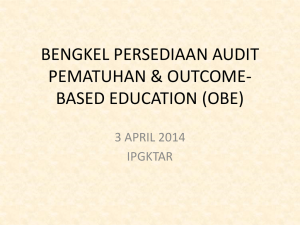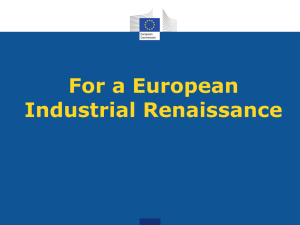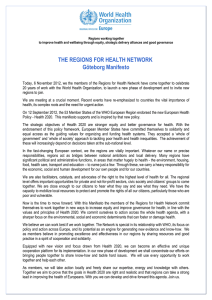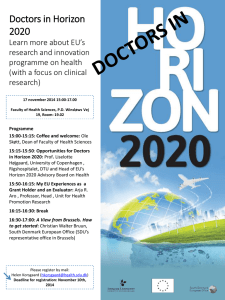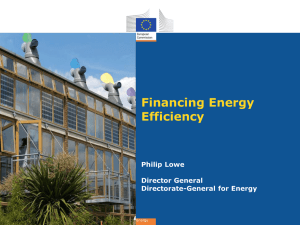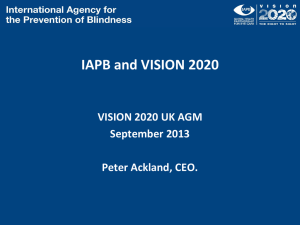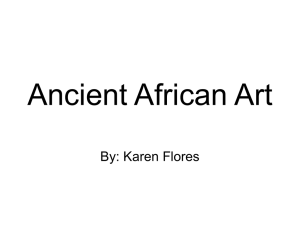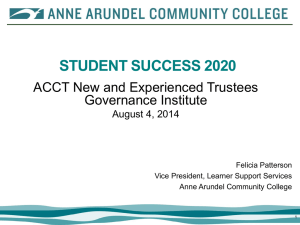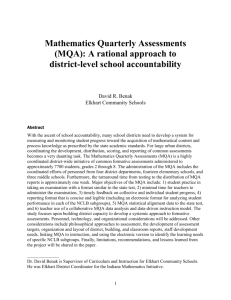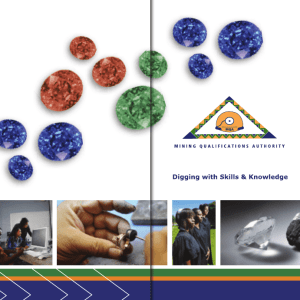evolution of qa system in higher education - East
advertisement
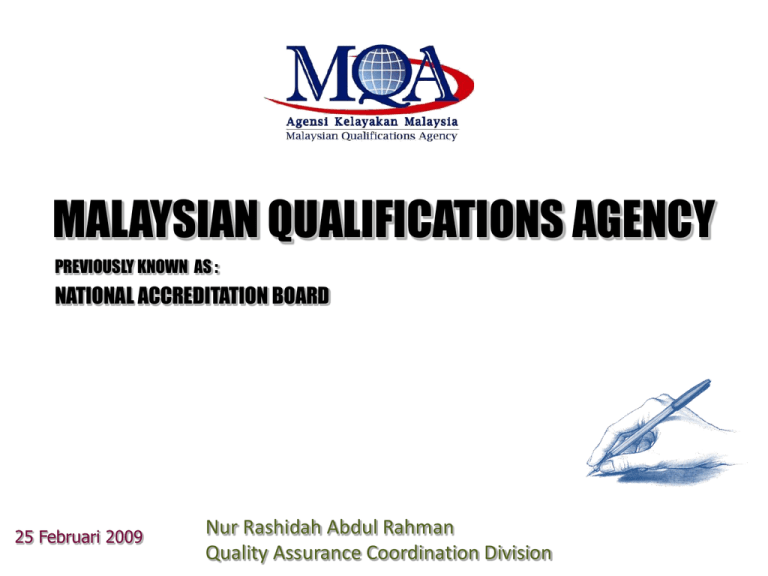
MALAYSIAN QUALIFICATIONS AGENCY PREVIOUSLY KNOWN AS : NATIONAL ACCREDITATION BOARD 25 Februari 2009 Nur Rashidah Abdul Rahman Quality Assurance Coordination Division TOPICS 1. STUDENT ENROLMENTS AND RESEARCH IN HIGHER EDUCATION 2. HEP - ORGANIZED AND REGULATED 3. MQA ACT: FEATURES AND VALUES 4. CORE QUALITY ASSURANCE PROCESS (MQA) 5. QUALITY ASSURANCE MODEL—QA STANDARDS & MALAYSIAN QUALIFICATIONS FRAMEWORK (MQF) 6. ISSUES AND POLICY IFE 2020 Leadership Institute STUDENT ENROLMENTS IN HE Year 2003 2005 2007 2010 2015 2020 Matriculation/ALevel /Foundation Public College 158,459 235,740 296,900 351,700 388,300 428,700 140,999 200,100 234,200 250,500 304,800 370,800 Public University 280,037 310,500 336,900 371,700 458,300 552,600 Private Provider 337,949 336,900 371,100 465,700 567,88 685,800 Oversea Student 62,301 56,800 50,000 50,000 50,000 50,000 TOTAL 979,745 1,140,040 1,289,100 1,485,600 1,759,200 2,087,900 Population Age 17-23 3,277,338 3,399,200 3,510,200 3,628,300 3,840,900 4,147,000 Percentage 29% 33% 36% 40% 45% 50% Category Source: Economic Planning Unit & Ministry of Higher Education IFE 2020 Leadership Institute LEVEL OF STUDENT ENROLMENTS IN HE AMOUNT OF STUDENT LEVEL 2005* Public Private 2010* 2020** Total Public Private Total Public Private Total Cert. 37,931 94,949 132,880 141,290 143,480 284,770 230,100 233,700 463,800 Diploma 98,953 131,428 230,381 285,690 188,680 474,370 488,000 322,300 810,300 First Degree 212,326 110,591 322,917 293,650 134,550 428,200 434,700 199,200 633,900 Master 34,436 4,202 38,638 111,550 5,770 117,320 289,300 15,000 304,300 6,742 140 6,882 21,410 270 21,680 54,800 700 55,500 390,388 341,310 731,698 853,320 472,750 1,326,340 1,496,900 770,100 2,267,800 PhD TOTAL Source : * Forecast by 9th Malaysian Planning ** Forecast by Ministry of Higher Education IFE 2020 Leadership Institute RESEARCH ACTIVITIES Rating by the Ministry on COE of Public Universities No . COE Cluster Public University Result UM Centre of Research Power Electronics, Drives, Automation & Control (UMPEDAC) Engineering 2. Photonics Research Centre Engineering Universiti Malaya Approved 3. Nano Centre Engineering Universiti Malaya Approved 4. Institut Perubatan Molekul (UMBI) Life Science Universiti Kebangsaan Malaysia(UKM) Approved 5. Institut Biosains Life Science Universiti Putra Malaysia (USM) Approved 6. Institut Penyelidikan Perubatan Molekul (INFORMM) Life Science Universiti Sains Malaysia(USM) Approved 7. Centre for Drug Research Life Science Universiti Sains Malaysia(USM) Assessment Process 8. Institut Penyelidikan Perakaunan (ARI) Universiti Teknologi MARA (UiTM) Assessment Process 1. Universiti Malaya Social Science Approved IFE 2020 Leadership Institute P U B L I C A N D P R I VAT E S E C TO R I N H I G H E R E D U C AT I O N ( u n t i l J u n e 2 0 0 7 ) TYPES OF INSTITUTION AMOUNT Public University 20 Polytechnic 21 Community College 37 Private University/College University 36* Private College 485 TOTAL 599 -PUBLIC PROVIDER REGULATED BY UNIVERSITY AND COLLEGE UNIVERSITY ACT -PRIVATE PROVIDER REGULATED BY PRIVATE HIGER EDUCATION INSTITUTE ACT *Including 4 External Universities’ Branch Campus which are : 1. University of Nottingham, Malaysia 2. Monash University Malaysia 3. Curtin University of Technology Sarawak 4. Swinburne University of Technology, Sarawak ** Source : Ministry of Higher Education IFE 2020 Leadership Institute EVOLUTION OF QA SYSTEM IN HIGHER EDUCATION NOV. 2007 …… 2007 1996 - 2006 •1996 : QA Internal Matter of Institutions •1997 : Legal Reforms LAN for Private Providers •2002 : QAD for Public Providers 2002 : Draft MQF •2005 : Cabinet Decisions MQA & MQF “not fully unified HE” “segmented QA system” 2006 : Consultation & Drafting MQA Bill PHASE 1 MQA BILL •13 June : Cabinet Approval MQA Bill •2 &16Jul: Parliament Approve MQA Bill •Unified Higher Education system •Public confidence •Strengthening Malaysia as a global player in Higher Education >>>>> •Transition to full implementation of a unified Quality assurance system and Qualifications Framework •MQF to be uphold by QA processes •MQA a major player in Higher Education contributing towards human capital and National Competitiveness •A SHARED RESPONSIBILITY FOR QUALITY PHASE 2 MQA ACT- FEATURES AND VALUES MQA’S ROLE STANDARDS, CRITERIA AND PROCESSES & BEST PRACTICES OPERATING VALUES Overarching role, guardian of Quality and Framework & protects national sovereignty, Reliable information centre-covers all higher education providers National consensus, internationally benchmarked with national & incorporates best practices on QA Objective, fair, transparent, professional, developmental and accountable, quality enhancement & efficient service delivery IFE 2020 Leadership Institute QUALITY ASSURANCE MODEL Integrated into MQF & Supports increasing autonomy of institutions—programme accreditation & institutional audit FRAMEWORKCONNECTIVITY Interlinked sectors, articulation bridges— educational pathway, internationally benchmarked, credits reflect international currency, promotes recognition, portability and mobility STAKEHOLDERS INCLUSIVITY Committed and provided in the Act for collaboration, cooperation with internal and external stakeholders IFE 2020 Leadership Institute MQA ACT 2007: PREAMBLE To establish the Malaysian Qualifications Agency as the national body to implement the Malaysian Qualifications Framework, to accredit higher educational programmes and qualifications, to supervise and regulate the quality and standard of higher education providers and to establish and maintain the Malaysian Qualifications Register and to provide for related matters. IFE 2020 Leadership Institute MQA ACT 2007: ACCREDITATION “Accreditation” means a recognition granted by the Agency after examining and assessing— (a) a higher education programme or qualification; or (b) a higher education provider under Chapter 4 or 7 of part VIII, which is in accordance with the Framework IFE 2020 Leadership Institute MQA CORE ACTIVITIES • QUALITY ASSURES HIGHER EDUCATION BY ACCREDITATION-PROGRAMMES, QUALIFICATIONS , INSTITUTIONS (institutional audit approach-programme, thematic, monitoring, faculty, institutional) • STANDARDS SETTING & REVIEWS • IMPLEMENTS FRAMEWORK • ESTABLISHES CLEAR ARTICULATION POINTS • REGISTERS QUALIFICATIONS (National Reference Centre) • EQUIVALENCY EVALUATION IFE 2020 Leadership Institute MQA ACT 2007: CORE QA PROCESS PROGRAMME ACCREDITATION INSTITUTIONAL AUDIT Programme accreditation Thematic,faculty /discipline base or institutional wide audit; Meets Framework requirements and QA standards and Criteria, institutional mission (Various types of IA) ACCREDITATION VISIT BY ASSESSORS TO INSTITUTION Programme accreditation will cease when institutions breach standards in Institutional audit PROVISIONAL ACCREDITATION Approval/ commencement of programme PROFESSIONAL BODIES FULL ACCREDITATION SKILLS AUTHORITIES APPLY TO REGISTER IN THE MALAYSIAN QUALIFICATIONS REGISTER MONITORING/NO REACCREDITATION QA CODE OF PRACTICE: 9 ASPECTS - STANDARDS Vision, Mission, & institutional goals, Programme design Student selection learning outcomes & delivery & support Student Assessment System Educational resources Academic staff Programme Monitoring & Review Leadership, Governance and Administration Total Continuous Quality Improvement Malaysian Qualifications Framework • An instrument that develops and classifies qualifications based on a set of criteria – Agreed nationally and benchmarked with international practices – Clarifies the academic levels, learning outcomes and credit system based on student academic load. Also provides education pathways MQF unites and links all national qualifications Parity of esteem of qualifications IFE 2020 Leadership Institute LIFELONG LEARNING QUALIFICATION LEVELS & PATHWAYS MIN HUMAN RESOURCE POLYTECH & NON DEGREE GRANTING COLLEGES LIFELONG LEARNING POSTGRAD CERT & DIPLOMA A P E L 5 ADV DIPLOMA ADV DIPLOMA (40 Cr) 4 SKILLS DIPLOMA TECH & VOC (90 Cr) DIPLOMA 3 TECH & VOC CERTIFICATE (60 Cr) SKILLS 2 CERT 1 LEVELS SCHOOL CERT GRADUATE CERT & DIPLOMA CREDITS UNIVERSITY DOCTORAL 8 MASTERS 7 BACHELORS (120 Cr) 6 HIGHER SCHOOL CERT; FOUNDATION MATRICULATION TERMS APPLIED TO FRAMEWORK • “higher education qualification” means post-secondary qualification including certificate, diploma, advanced diploma or degree or their equivalent and includes any other qualification stipulated in the framework; • “learning outcome” means the standard to be achieved from an educational programme or qualification as determined by the Framework (level descriptors); • “credit” means a representative measure to reflect the academic load; • “academic load” means the quantitative measure of learning activities which includes lectures, tutorials, seminars, practical work, field work, self study, and examinations to achieve a set of learning outcomes Supplemented by documents on MQF, 8 learning domains, Credit System and Programme disciplines standards and Code of Practice for QA. IFE 2020 Leadership Institute MQF: CREDIT SYSTEM • A shift from teacher-centered to learner-centered • Each learning activities are taken into consideration in calculating student learning time and contact hours • (Guided Learning & Independent Learning) : e.g. lectures, tutorial, practicals, lab work, research, updating notes, discussions, projects, tests, course work presentations, industry training, exams and so forth • 1 credit ≡ 40 hours of notional student learning time IFE 2020 Leadership Institute MQF: Proposed minimum credit Qualification MQF Levels Minimum Credit 8 Doctoral No given credit value 7 Research Masters No given credit value Fully or Partly Taught Masters 40 Postgraduate Diploma 30 Postgraduate Certificate 20 Bachelors 120 Graduate Diploma 60 Graduate Certificate 30 5 Advanced Diploma 40 4 Diploma 90 1-3 Certificate 60 6 Skills Certificate According to skills & levels 8 domains Learning Outcomes Competency level SOCIAL SKILLS & RESPONSIBILITY PSYCHOMOTOR/ PRACTICAL/ TECHNICAL SKILLS Life Long Learning & Information Management Critical Thinking & Scientific Approach Communi -cation & team skills Managerial & Entrepreneu -rial Skills PROFESSIONALISM, VALUES, ATTITUDES, ETHICS Credits KNOWLEDGE How does it all link up? MQA Credit Hours • What students will be able to do? Learning Outcomes • The yardstick to measure student learning. • The frame within which students’ learning is pegged. • The Agency that holds all together. MQF IFE 2020 Leadership Institute 21 MALAYSIAN QUALIFICATIONS REGISTER National reference for standards and articulation point for all accredited programmes, qualifications and institutions Ensure authenticity, clear and up-to-date information for internal and external clients (National Reference Centre) IFE 2020 Leadership Institute ISSUES 1. HE Undergo Major Transformations – These changes do to some extent question the ability of higher education providers in sustaining quality in the development of academic programs 2. Emphasising Research and Development Activities 3. Employability of Local Graduates 4. Corporatisation of Public Universities 5. Improving quality of teachers, curriculum and instruction in primary and secondary school system IFE 2020 Leadership Institute Policies / Initiatives 1. MQF, Code of Practice (COPPA & COPIA), Program Standard and Guidelines of Good Practice 2. HEP have entered into agreements with corporations to produce specific research product or provide access to university facilities. 3. The reinvention of study programs that provide opportunities for skill training and development. 4. Universities can set up companies, enter into business venture, allowed to borrow money, acquire and hold investment share etc 5. Allowing teachers to study part time for degree courses, teaching graduate teachers in PKPG program, primary school to take half-pay leave to follow undergraduate courses on a full time basis. IFE 2020 Leadership Institute THANK YOU IFE 2020 Leadership Institute
